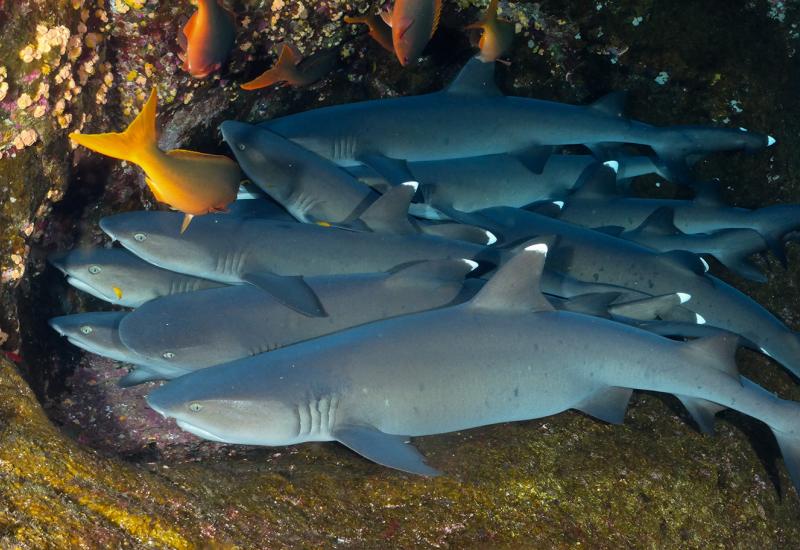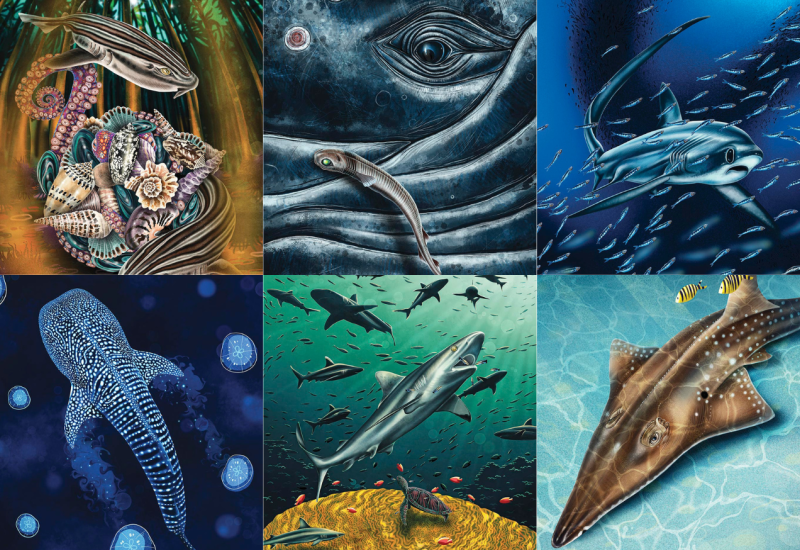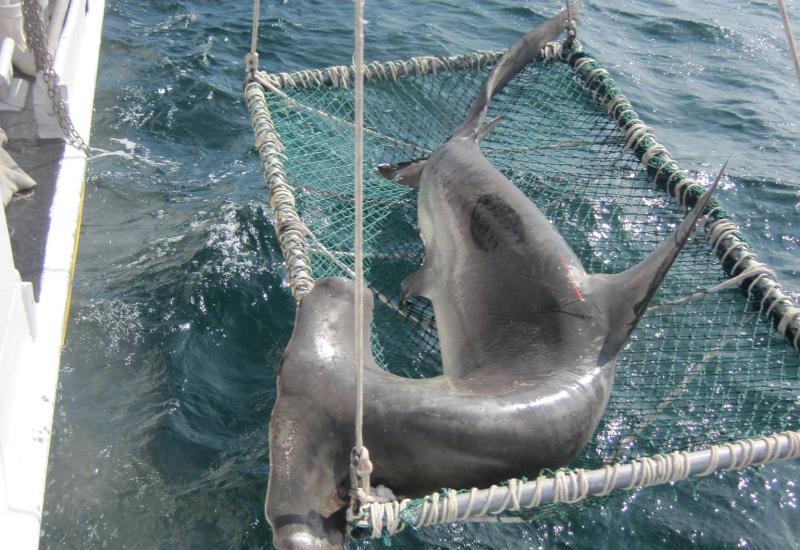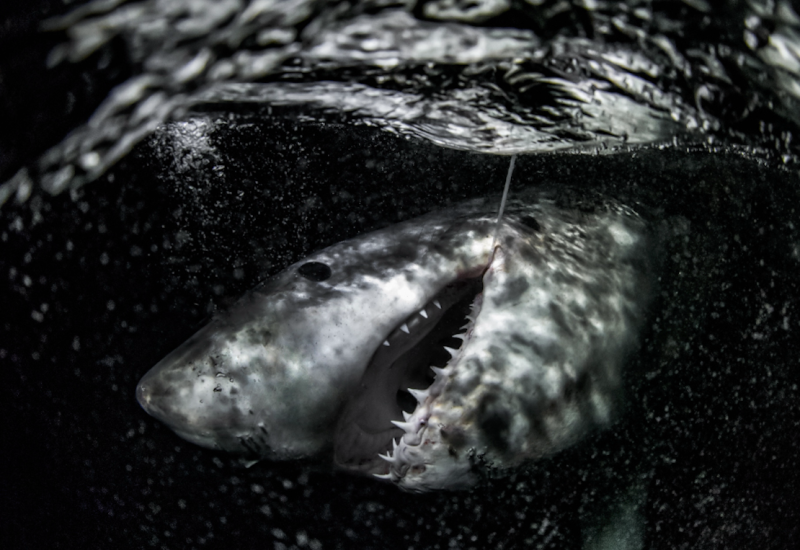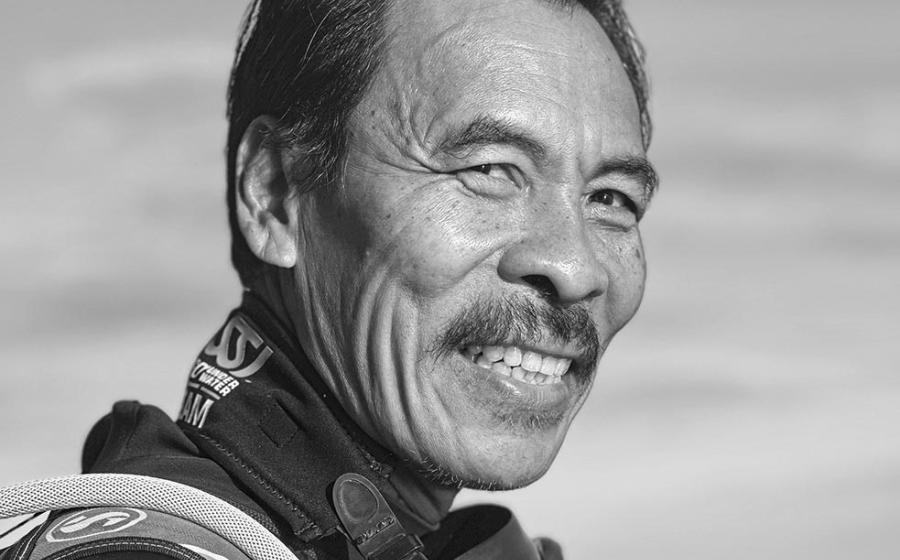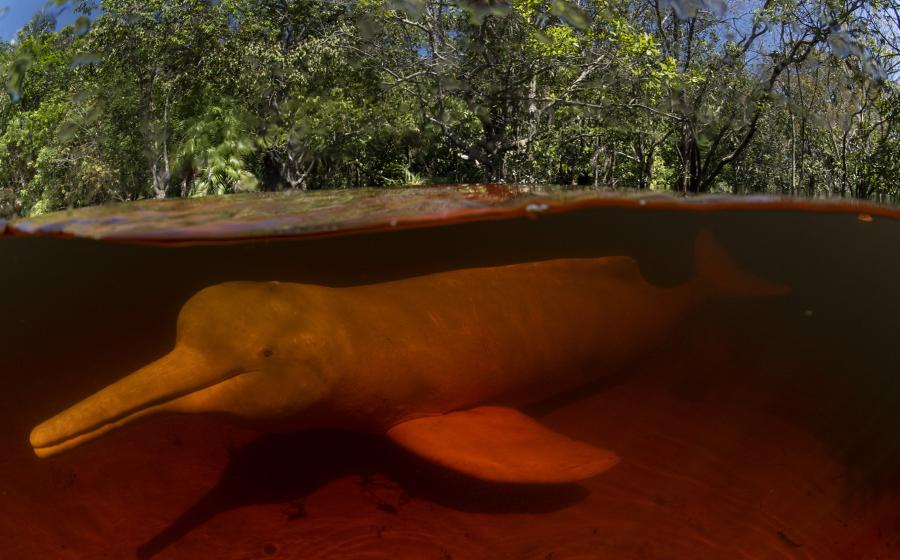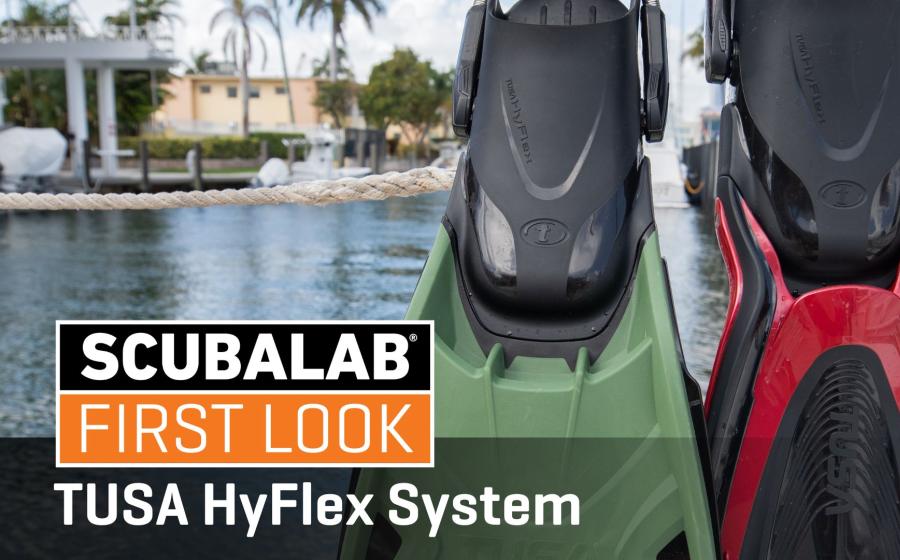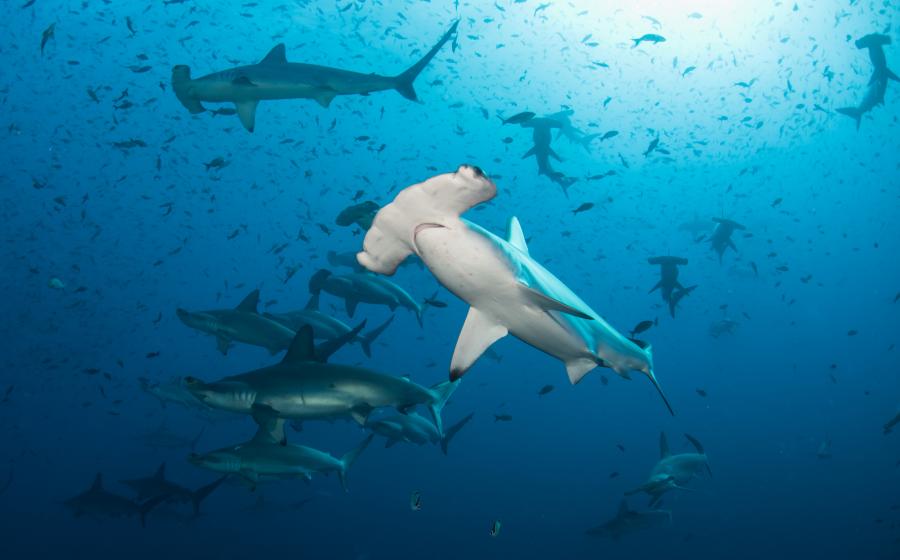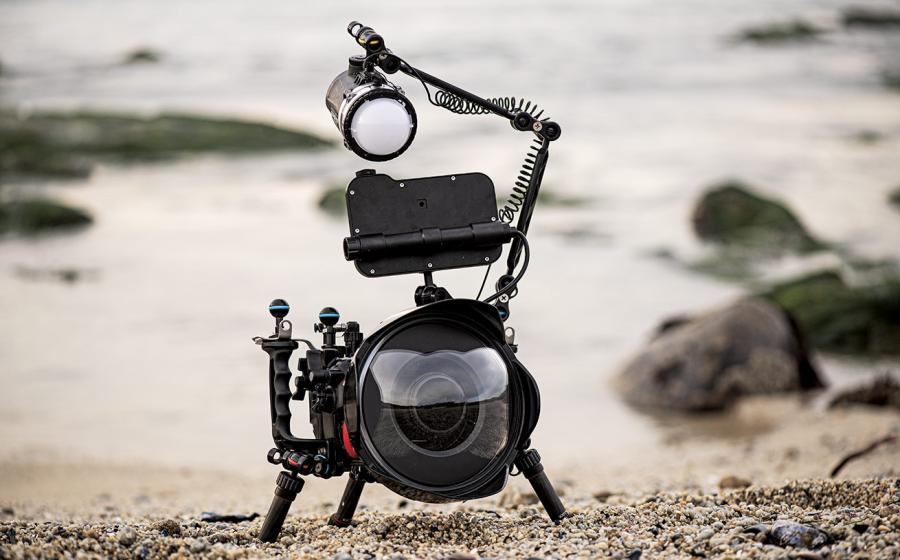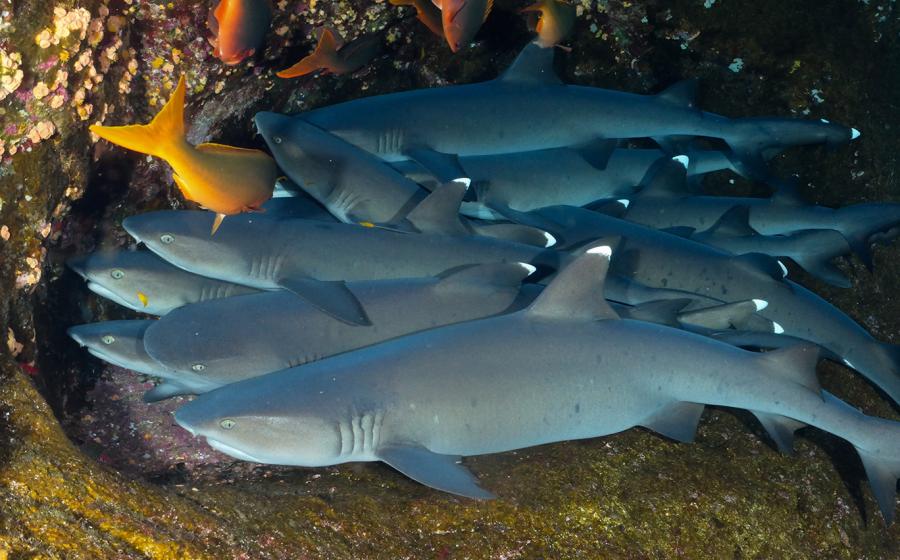OCEARCH to Tag Great White Sharks in the U.S. Southeast
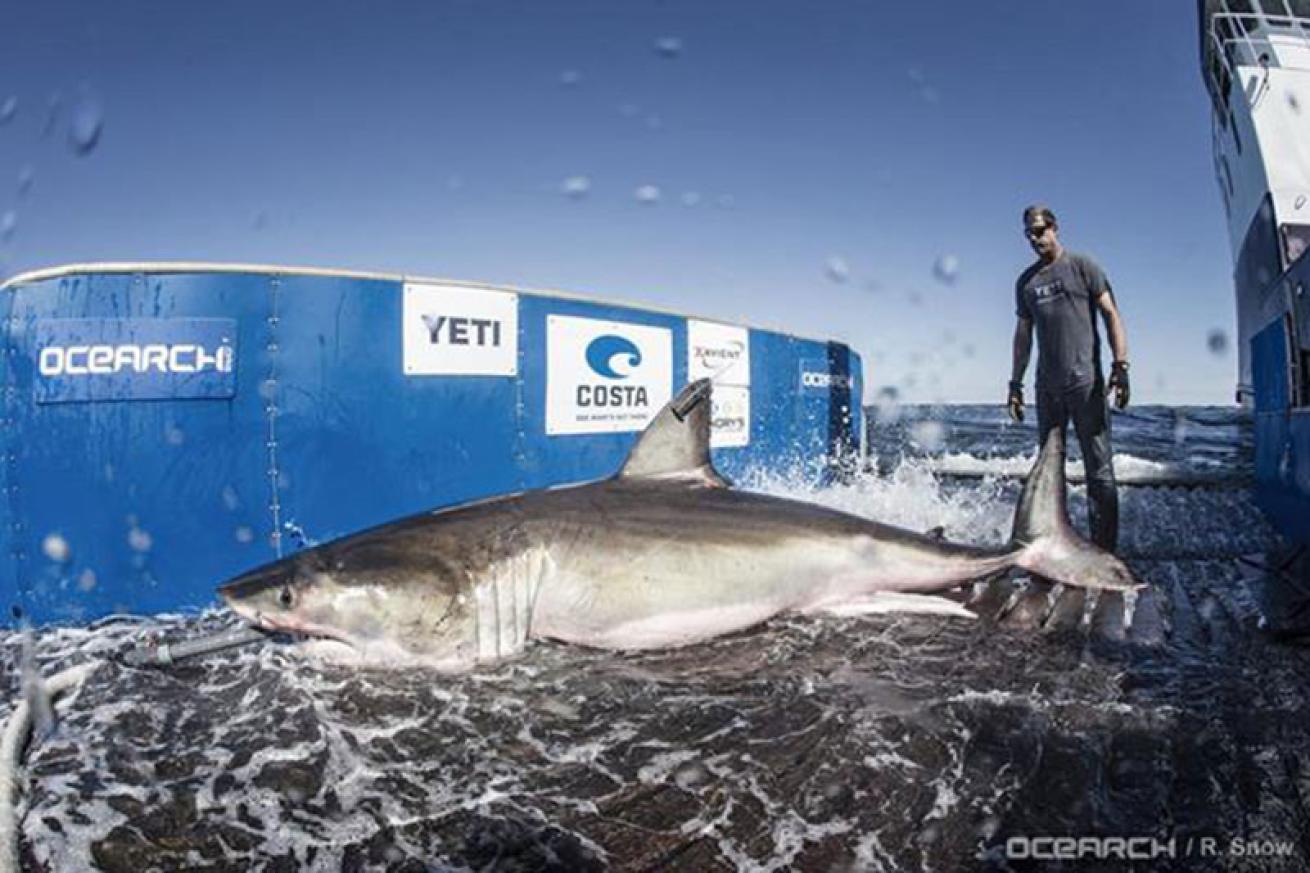
Courtesy OCEARCHFishing Master Brett McBride with Hilton, a mature 1,326-pound, 12.5-foot, male great white shark tagged in 2017. Hilton was named for South Carolina's Hilton Head Island.
Shark conservationist Chris Fischer, Scuba Diving’s November/December 2016 Sea Hero for his dedicated, inventive approach to shark conservation, embraces the mission of the organization he founded, OCEARCH. In the early 2000s, Fischer helped create an Emmy award-winning television show, Offshore Adventures, in which he promoted sustainable catch-and-release fishing. When he realized how little researchers knew about sharks, he bought a former crabbing vessel, equipped it with a powerful lift, and planned OCEARCH's very first expedition to tag great whites.
OCEARCH's 2018 expeditions are kicking off this month in the coastal waters off north Florida, Georgia and South Carolina.

Courtesy OCEARCH/Rob SnowOCEARCH founder Chris Fischer
“We’re returning to the Lowcountry because our sharks led us here,” Fischer says.
“Two of our mature animals, Lydia and Hilton, tagged in the Southeast, spent significant time in Canadian Atlantic waters, while most of our Cape Cod sharks have not, with some exceptions,” said Dr. Bob Hueter, Director of the Center for Shark Research at Mote Marine Laboratory and OCEARCH’s Chief Science Advisor. “Because of the overwintering importance of the Southeast for the entire Northwest Atlantic population, and because our mature animals tagged there went to Canada, it's important we follow up on previous expeditions and try to get more tags out in the Southeast, especially on mature animals.”
OCEARCH tagged Hilton, who is currently pinging off the coast of Jacksonville, Florida, in the area last year. In total, the research group has caught, satellite-tagged, and tracked 33 great white sharks in the Atlantic since 2012, including five mature white sharks; however, scientists need a larger sample size.
“More movement data, especially on mature animals, remains the key to a comprehensive understanding of the species’ habitat use,” Dr. Bryan Franks, expedition lead scientist and assistant professor of marine science at Jacksonville University, said. “More data that will allow researchers to better understand seasonal ranges and identify critical areas for the white shark along the eastern seaboard.”
OCEARCH's sharks have gained notoriety due to the Twitter accounts started by fans of the organization's work. You can follow Hilton @HiltonTheShark.
Sharing location updates, humorous anecdotes and fun facts, the Twitter handles for the sharks have helped generate interest in great whites and furthered understanding of them. The Twitter personalities complement the shark tracker, but most of them do not belong to OCEARCH.
“By and large, most of the sharks’ accounts are handled by organic shark lovers,” Fischer says. “We identified the owners to establish a common set of values to make sure the tweets are data-driven and science-focused. OCEARCH belongs to everyone, and Twitter is another means of bringing total inclusion.”
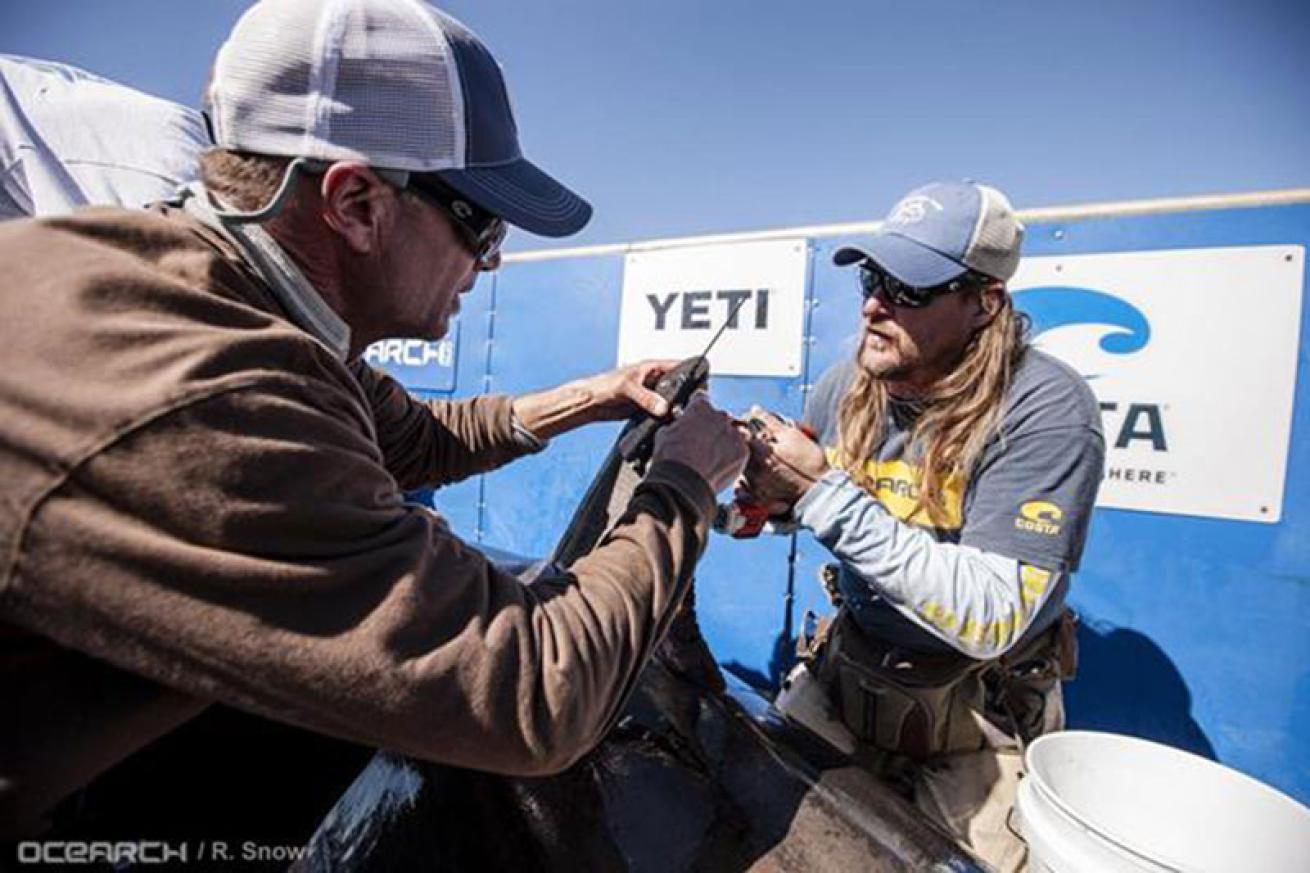
Courtesy OCEARCHThe OCEARCH crew in the process of attaching a satellite transmitter tag to Hilton's dorsal fin.
The team of shark researchers and fishermen will begin their research on January 18 off the coast of Jacksonville, Florida, before heading to Hilton Head, South Carolina, as part of Expedition Lowcountry II. OCEARCH will host 11 researchers, from 11 various institutions, aboard its M/V OCEARCH research vessel as part of its mission to enable data collection by providing collaborating researchers and institutions unprecedented access to mature marine animals.
There are also 11 other researchers from 10 institutions who will receive the biological samples from each animal tagged, allowing them to analyze the results from the blood, mucus, muscle, parasite, genetic, and other samples collected. Researchers will use these samples to conduct several studies, including understanding the sharks’ reproductive condition.
"White sharks are the balance keepers of the ocean — understanding their lives is crucial to manage the entire resource toward abundance."
The expedition will include scientists from Jacksonville University, Mote Marine Laboratory, Adventure Aquarium, Georgia Aquarium, Georgia Southern University, University of South Carolina-Beaufort, Wildlife Conservation Society’s New York Aquarium, Woods Hole Oceanographic Institution, University of Massachusetts, University of North Florida, Auburn University, College of Charleston, University of Florida, Cape Canaveral Scientific, South Eastern Zoological Alliance for Reproductive Conservation, VithajSafari, Long Island Shark Collaboration, Georgia Institute of Technology, South Carolina Department of Natural Resources, Windsor University, and Shedd Aquarium.
All sharks will be fitted with at least one satellite transmitter tag and an acoustic tag. As the sharks’ fins break the surface, the satellite tag will transmit their locations. You can follow the sharks tagged during Expedition Lowcountry II by accessing the near-real time, free online Global Shark Tracker or by downloading the Global Shark Tracker App available for Apple and Android platforms.

